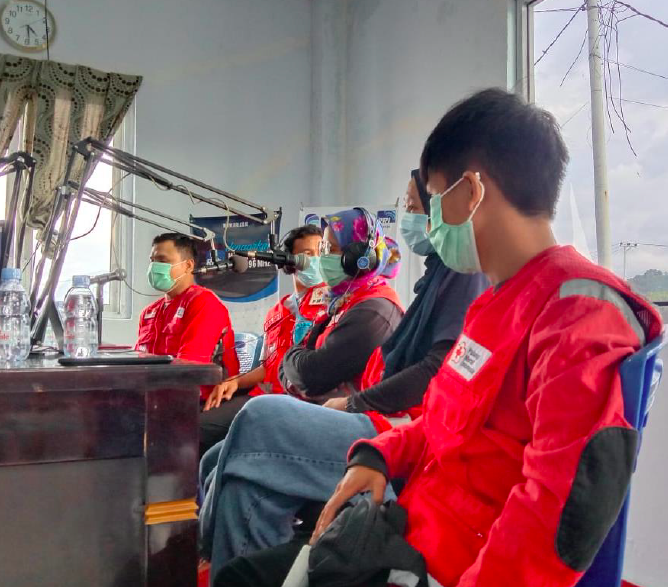CEA during the COVID-19 pandemic Indonesia
Description
A case study on the COVID-19 Community Cash Grant operation in Indonesia, as well as the earthquake relief operation in West Sulawesi. This study presents an interesting example to understand how a community-centered programme adapted to the needs of the pandemic and provides an opportunity to understand the key strategies of how disaster response mechanisms were complicated by the pandemic.
Community engagement and accountability (CEA) is an approach to Red Cross Red Crescent programming and operations. It is supported by a set of activities that help put communities at the centre of what we do, by integrating communication and participation throughout the programme cycle or operation.
CEA is the process of and commitment to providing timely, relevant and actionable lifesaving and lifeenhancing information to communities. It is about using the most appropriate communication approaches to listen to communities’ needs, feedback and complaints, ensuring they can actively participate and guide Red Cross Red Crescent actions. CEA supports those involved in programmes and operations to adopt innovative approaches to better understand and engage with people and communities and help them address unhealthy and unsafe practices. It maximizes the Red Cross Red Crescent’s unique relationship with the community to help them speak out about the issues that affect them and influence decision and policymakers to implement positive changes.
Formerly known as Beneficiary Communication and Accountability, the CEA approach is being systematically integrated into the management of long-term project cycles. This includes but is not limited to steps like:
- Community needs identification
- Community risks and vulnerability ranking
- Programme design and planning
- Ensuring accountability in humanitarian resource allocation
- Acting on community feedback
- Conducting participatory evaluation of programmes
- Sharing back learning and knowledge with communities.
Engaging with communities in these ways leads to better quality programming, which supports the goal of improving community resilience, reducing the impacts of the disasters or crises, and strengthening institutional readiness.
Additional languages

DETAILS
Organisation
Emergency
Scope
Region
Keywords

